OUR HISTORY
Our History is Long. Here is where we started:
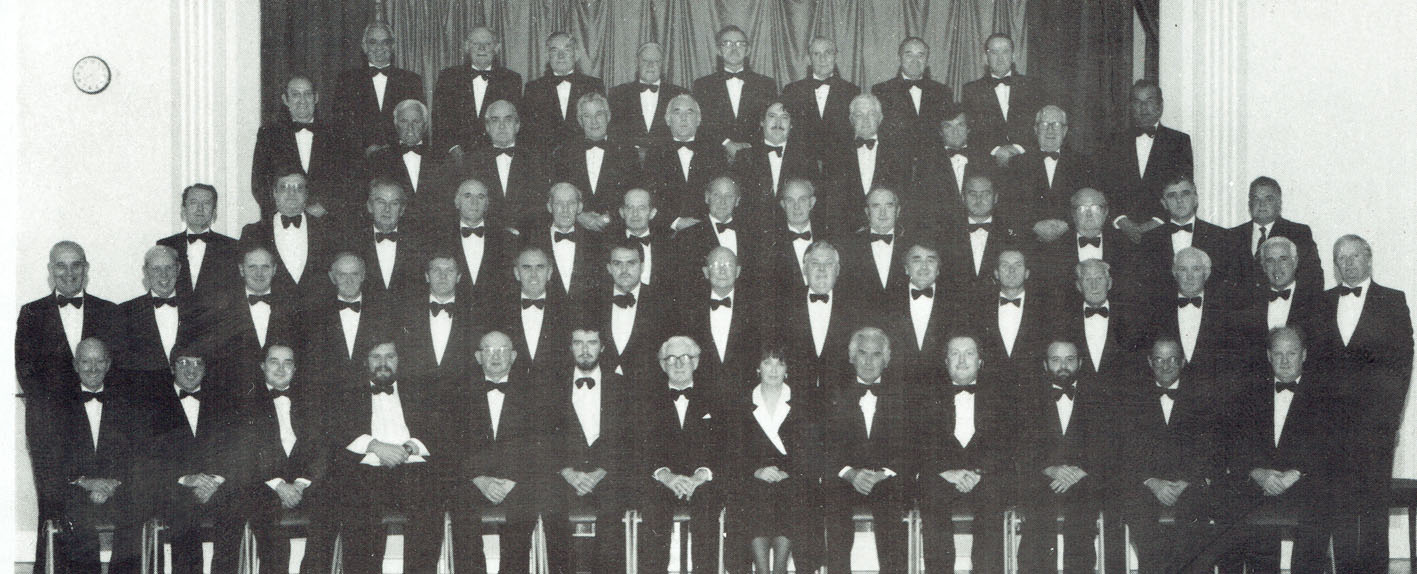
A male choir – Mynydd Mawr Male Voice Party – started in the Tumble area in 1913, under the baton of Tom Morgan, Gwendraeth View, Tyisha Road, Tumble, though there is an earlier record of a choir of the same name dating back to 1908. This choir performed at the official opening of the Cross Hands Public Hall in 1911 and in its formative years, the choir was successful in competitions at Abergwili and Swansea. Tom Morgan was succeeded by Peter Edwards, Llechyfedach, Tumble who continued the success of the choir winning fourteen successive First Prizes in competitions most notably with its test piece – Protheroe’s ‘Crusaders’.

The conductors that followed – G John Evans and Tom Hughes – were also successful in a number of competitions both locally and further afield. The choir disbanded in 1948 but the tradition of choral singing was revived in May 1965 when the male section of Bethesda Chapel’s ‘Cymdeithas Ddiwylliadol’ started a choir – ‘Bois y Bryniau’ – under the baton of Lloyd Asa Williams.
Joshua Jenkins, Drefach was the deputy conductor and the accompanist was Denzil T Jones, also from Drefach.
Denzil, in turn, was supported by talented pianist Miss Ann Rees and no choir would operate without its administrators: Willie Prosser (chairman), Albert Rees (secretary), T Ronald Jones (assistant secretary) and Idris Francis (treasurer). The officers were supported by committee members Donald Evans, Rushley Williams, Owen Rees and Idwal Phillips.
Its members had sung in many chapels in the neighbourhood and instead of disbanding in 1965, it was decided to continue as an established choir – the Mynydd Mawr Choir.
The first AGM was held in January 1966 when an invitation was extended to Sydney Evans to join as a Deputy Conductor. Dr Hopkins, Cross Hands was appointed President.
In June, the choir was named ‘Côr Meibion y Mynydd Mawr’, recognising the fact that men other than Bethesda Chapel members were eligible to join. One of the first decisions was to limit the choir’s activities to concerts only as participation in Eisteddfodau was frowned upon in those days.
The choir appeared in a BBC programme featuring Tumble in November and adopted a formal constitution. An official tie was also designed and purchased. In February 1967, the coir was adopted as the Carmarthenshire Red Cross Choir at a ceremony in Ebenezer Chapel, Tumble and a recording was sent to the Red Cross Society in Canada.

Gloom was cast over the choir in October 1968 at the passing of its conductor Lloyd Asa Williams. After a suitable interval, Sydney Evans was appointed conductor. The choir made an LP in December 1968 in memory of Lloyd Asa Williams. The recordings took place at the Swansea Studios with conductor Sydney Evans and accompanist Denzil Jones.
At this time, J Rhyddid Williams, was appointed Music Master at Gwendraeth Grammar School. he was invited to join the choir as its overall choir master. To the pleasure of all concerned, this was accepted. It would be difficult to enumerate in detail the long list of nearly 50 concerts conducted by Sydney Evans and Rhyddid Williams with accompanists Miss Non Evans and John James. Some concerts regularly took the choir to Birmingham and Cornwall.
The first appearance by the choir in an Eisteddfod was in Flint in 1969 when it gained Third Prize. The experience paid dividends when in the following year at Ammanford, the choir clinched the First Prize in competition with five others when being award 282 points – an unusual feature in that it was 8 marks ahead of all others. This exciting success brought glory to Tumble and the surrounding districts from which choristers were drawn as this was the first time a choir from the area had won First Prize at a National Eisteddfod.
A sequel to its success followed when the choir was invited to appear in the annual St David’s Day Festival at the Royal Albert Hall, London on 6 March 1971. The choir was at its best and as this programme was televised, it was a real thrill for those at home to see close ups of the choir, conductor and accompanists on the screen.
The choir continued to compete and won second prize in the National Eisteddfod at Bangor in August 1971.
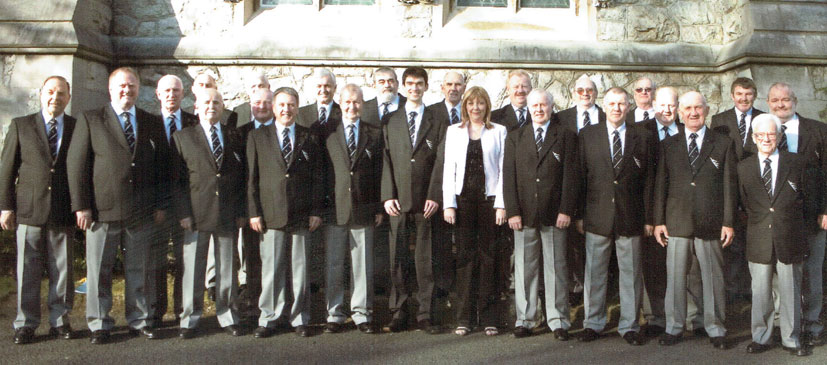
The choir has made a valuable contribution to numerous charitable organisations throughout Britain, and has been successful on five occasions on the Royal National Eisteddfod platform, as well as at other eisteddfodau. Also, in 2000, the choir was successful in winning the Male Voice competition at the Jersey International Music Festival, where choirs from all over Europe took part.
The choir has taken part in massed choir festivals for the Welsh Association of Male Choirs as well as with the London Welsh choir, at the Royal Albert Hall, the Birmingham Symphony Hall, the Colston Hall in Bristol, and the Winter Gardens in Bournemouth. In 1989, the choir made friends with the Frohsinn Male choir from Mulheim on the Ruhr, with their new found German friends paying a return visit the following year. The choir made such an impression on the Mulheim City Fathers, that in May of 1992, the choir was invited by the City Fathers to help them celebrate their European Year of the Festival Of Flowers.
In November 1993, the choir was honoured when it was invited to represent the Welsh Association of Male Choirs at the Centenary Banquet of the University of Wales in Cardiff, when the Prince of Wales, Mrs Mary Robinson the Irish President and the Aga Khan were present.
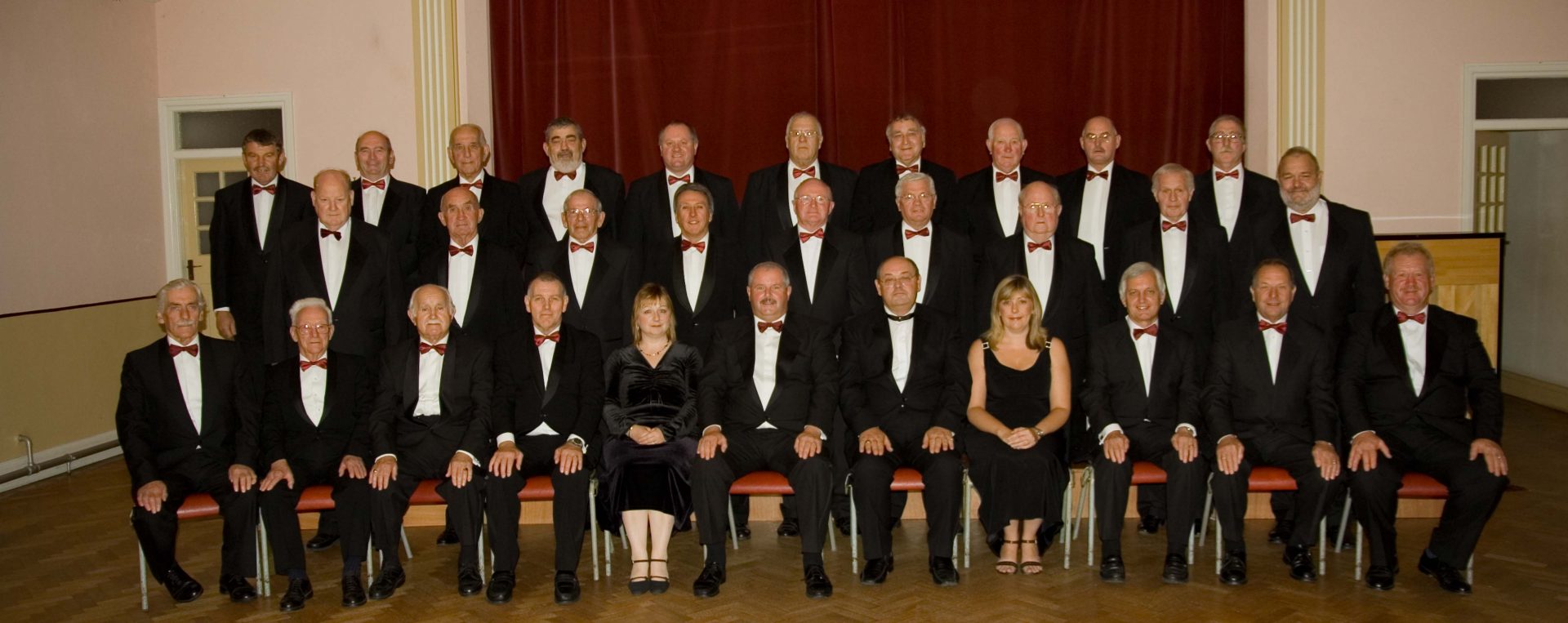
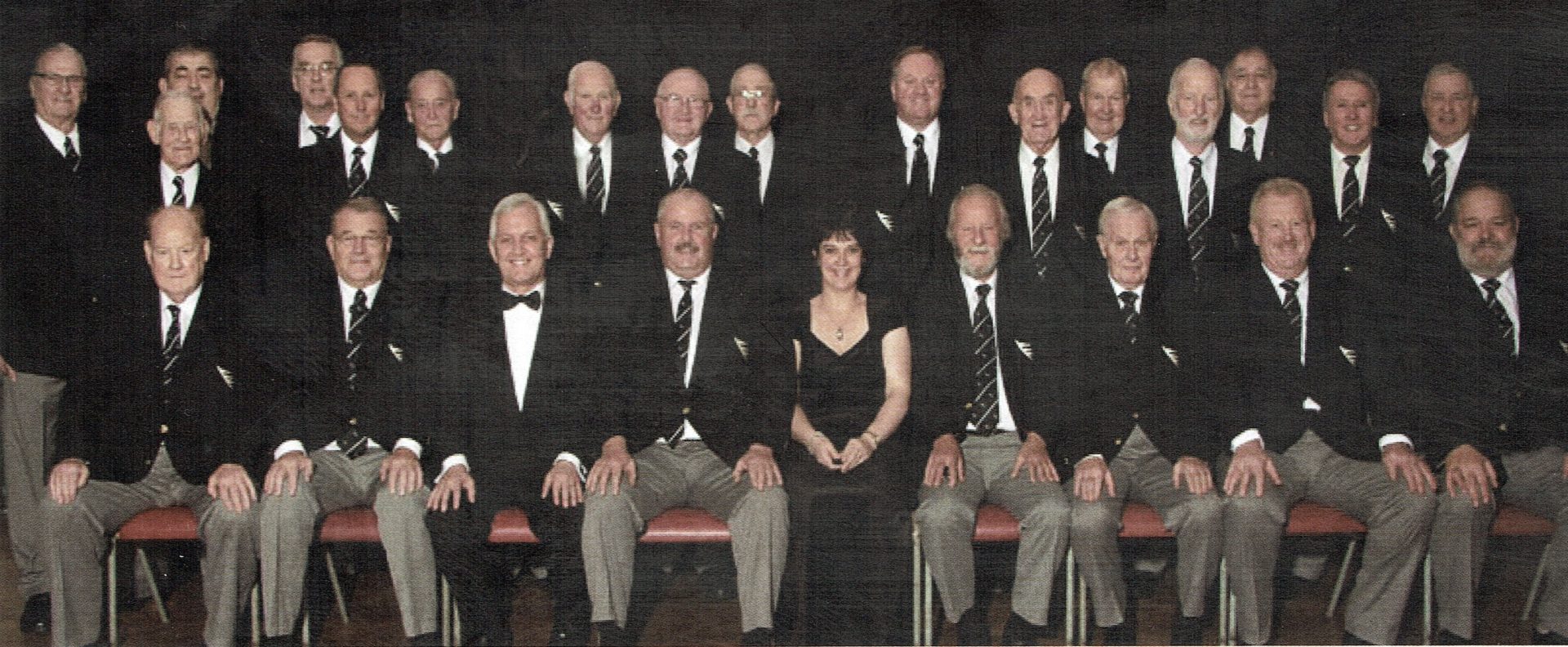
Côr Meibion Mynydd Mawr Male Choir2016
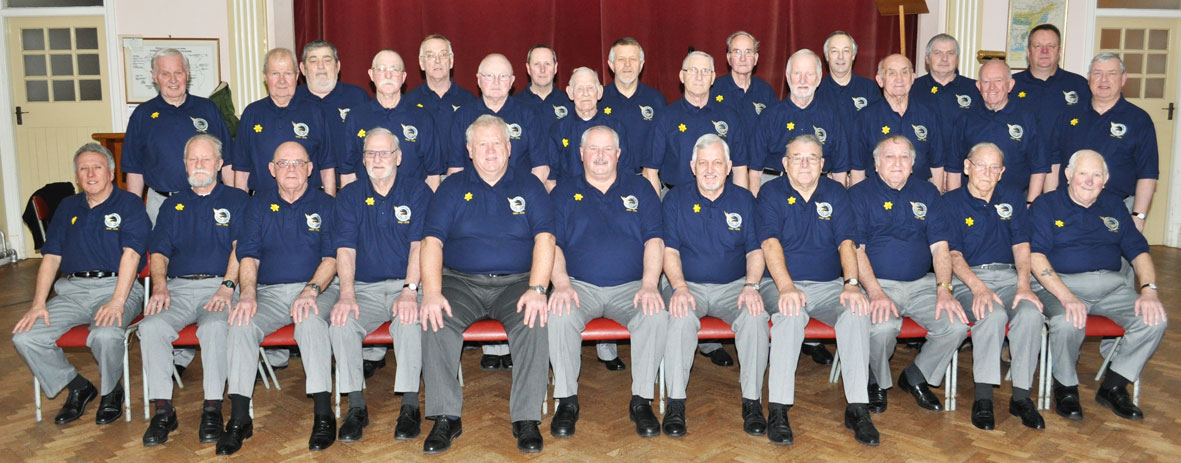
WOULD YOU ENJOY SINGING IN A WELSH MALE CHOIR?
We are a thriving choir with around forty members. We are always looking for new members. You do not need to be able to read music to join us, so come along.
